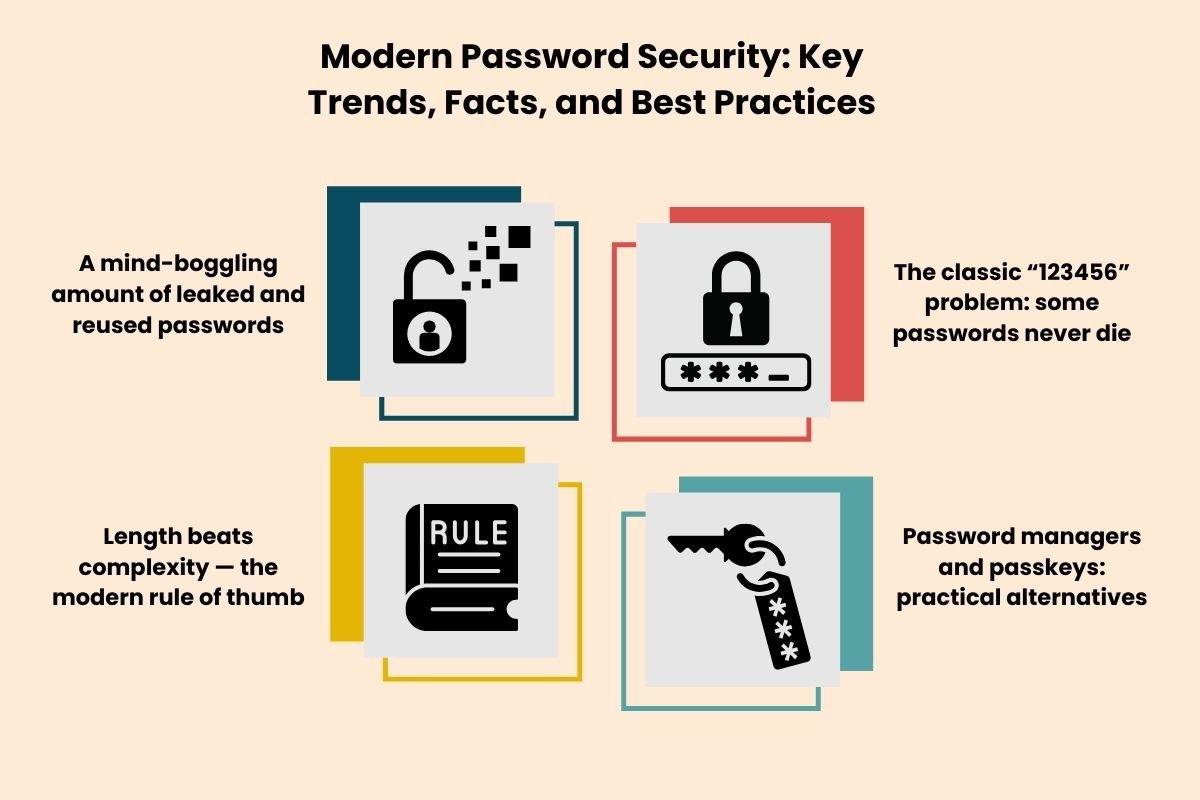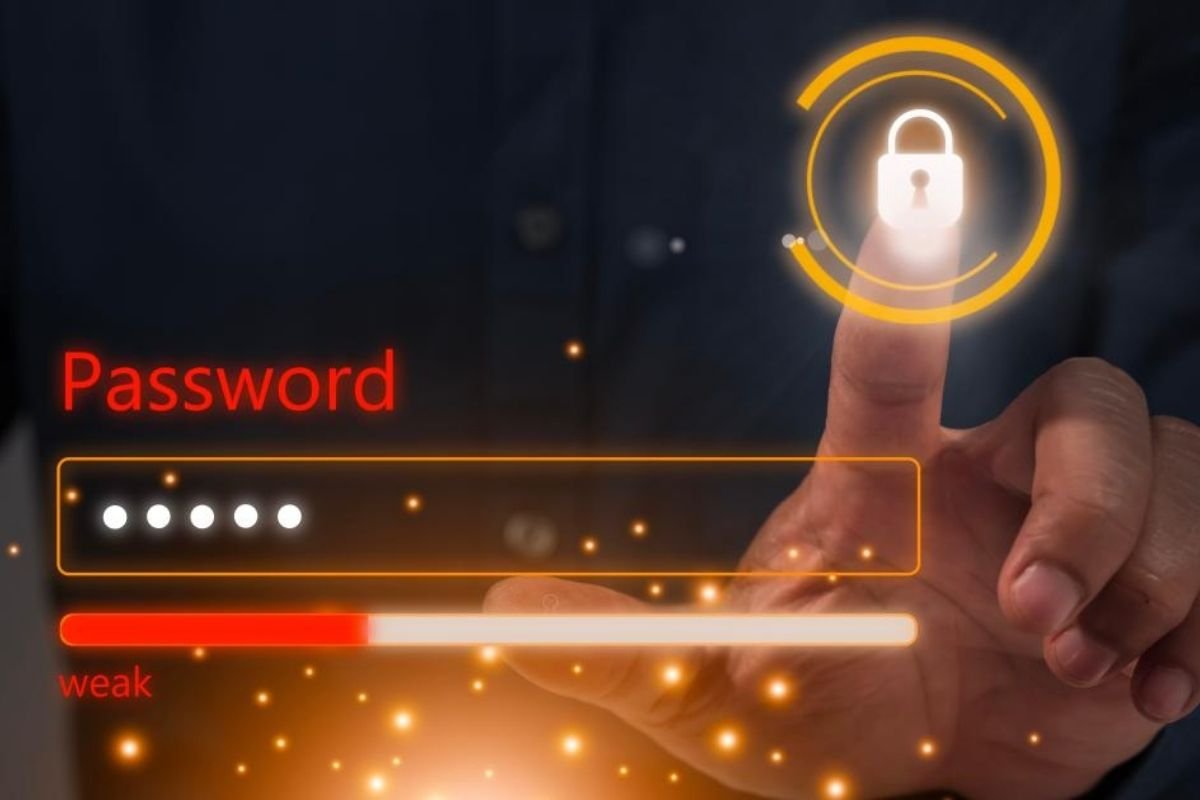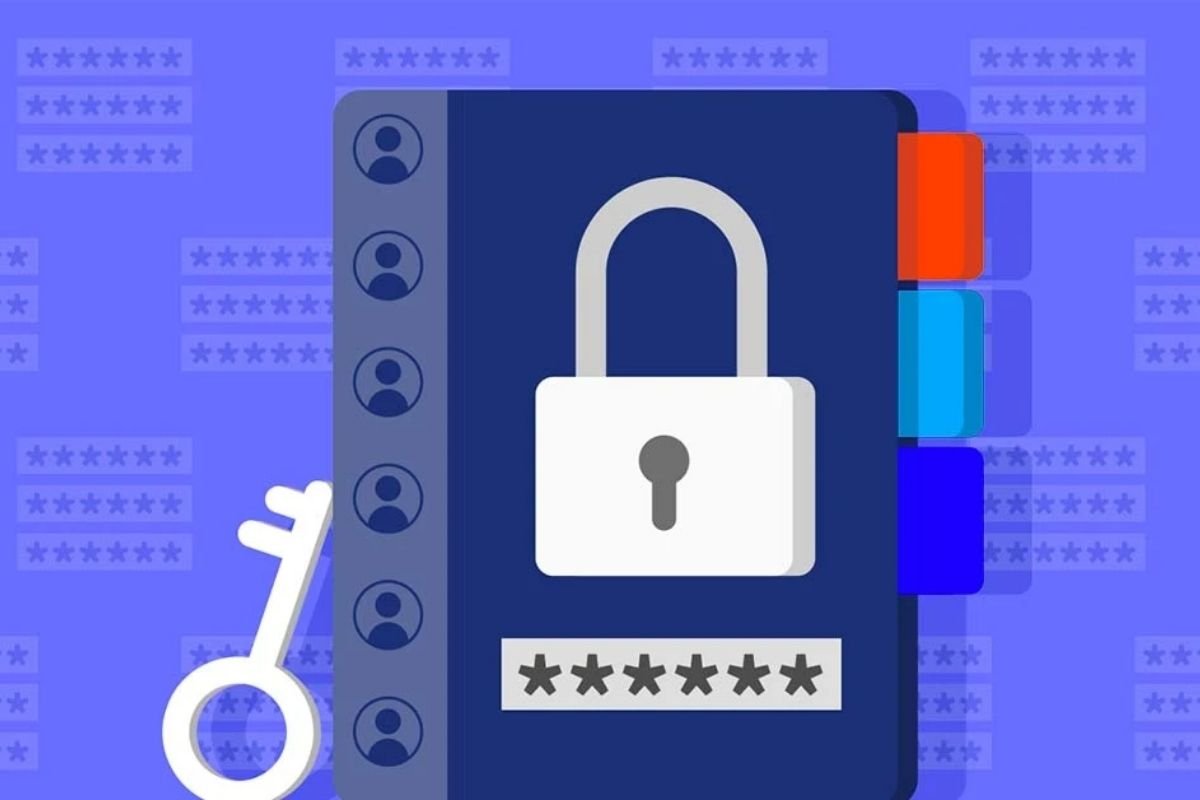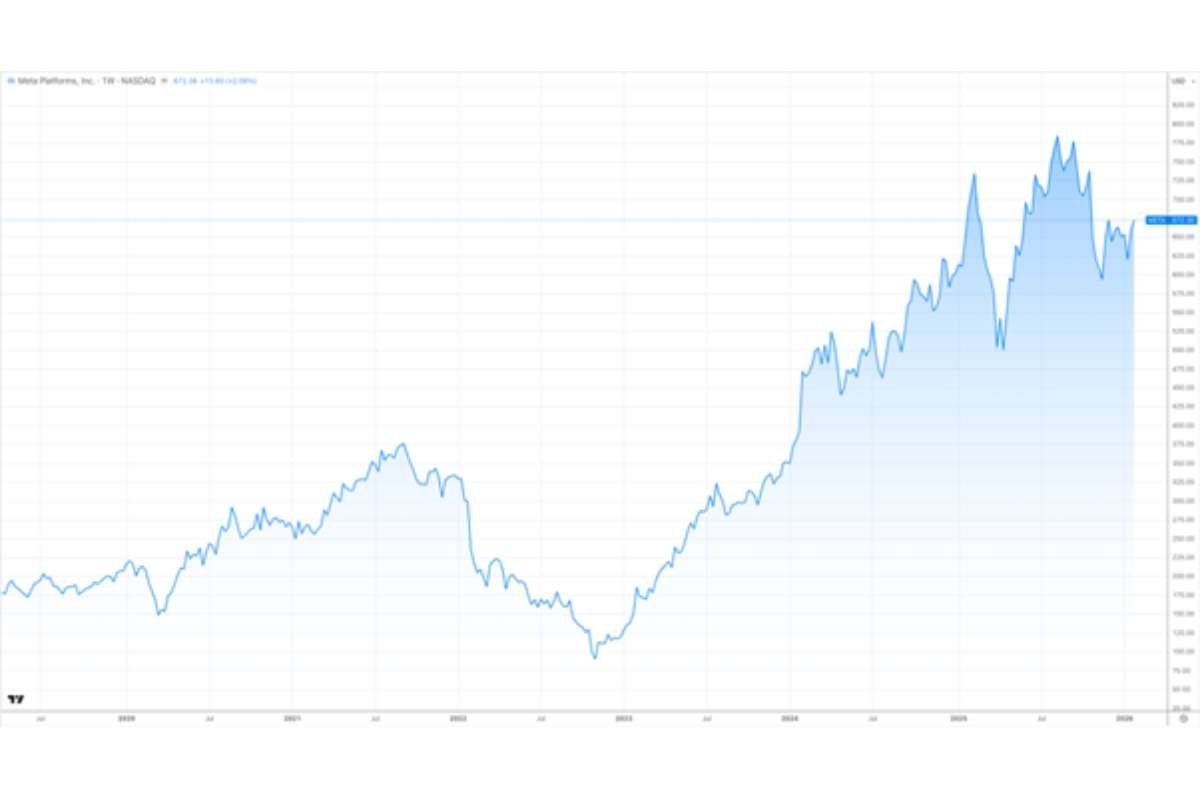If you think your password is just a random string you type in without much thought, think again. Behind those seemingly simple combinations of letters, numbers, and symbols lies a fascinating world of history, psychology, and even a few mind-boggling secrets. Passwords have quietly shaped how we protect our most valuable information, evolving from ancient code systems to today’s advanced digital safeguards. In this article, we’ll explore some interesting facts about passwords that might surprise you and make you rethink the next one you create. After all, your password is more than just a key—it’s a story in disguise.
Interesting Facts About Passwords in 2025
The password landscape in 2025 paints a sobering picture:
- The average person now manages over 120 unique passwords, up from 70 just five years ago.
- 81% of data breaches are linked to weak, reused, or stolen passwords (Verizon Data Breach Report, 2025).
- Despite endless warnings, 62% of users admit to reusing passwords across multiple platforms.
- Credential stuffing attacks — where hackers test stolen passwords on other sites — have surged by 47% since 2023.
These statistics prove that the interesting facts about passwords are more than quirky — they highlight urgent risks in our digital habits.
Modern Password Security: Key Trends, Facts, and Best Practices

To understand why modern password security advice has evolved, it’s worth looking at the key trends and research shaping current best practices — from the scale of breaches to the tools designed to replace passwords entirely.
1) A mind-boggling amount of leaked and reused passwords
One of the key facts driving modern password advice is the sheer scale: researchers have found that tens of billions of real-world passwords have been exposed across hundreds of breaches in recent years, highlighting widespread reuse and weak password choices. A 2024–25 analysis of breach data reported over 19 billion leaked passwords, with the vast majority duplicated across accounts — which makes credential stuffing and account takeover attacks far more effective.
Password reuse is common: multiple industry reports show high global rates of reuse and poor practices (for example, many people reuse the same password across three or more sites). In short, if one account is breached, dozens can become vulnerable instantly.
2) The classic “123456” problem: some passwords never die
Security researchers and password managers consistently find the same short, guessable sequences at the top of “most common” lists. “123456”, “password”, “admin”, and simple names remain shockingly widespread — and quick to crack. NordPass, SpecOp, and other industry trackers publish annual lists showing these strings ranked at the top. If your password is on those lists, assume it’s already been tried by attackers.
Read More: Why Weak Passwords Fail and What You Can Do About It?
3) Length beats complexity — the modern rule of thumb

For years, organizations insisted on complex mixes of symbols, numbers, and case changes. Research and official guidance have shifted: length (long passphrases) usually provides more entropy than short but complex strings, and forcing frequent, arbitrary changes can backfire by encouraging predictable variants. The National Institute of Standards and Technology (NIST) now emphasizes longer passphrases, discourages mandatory complexity rules that harm usability, and recommends supporting password managers and multi-factor authentication.
4) Password managers and passkeys: practical alternatives
Public cybersecurity agencies and standards bodies widely recommend password managers because most people cannot remember dozens (or hundreds) of unique, long passwords. They generate and store unique credentials, can detect reused or compromised passwords, and simplify secure logins across devices. Organizations such as the NCSC (UK) and the National Cybersecurity Alliance recommend using reputable password managers in conjunction with multi-factor authentication (MFA). Meanwhile, “passkeys” (a passwordless standard based on public-key cryptography) are gaining traction as a future-forward replacement in many ecosystems.
Celebrity Incidents: “It can happen to anyone.”
Famous account hacks show how harmful weak passwords, using the same password everywhere, or tricking people can be. Here are some cases:
- Kylie Jenner / Twitter compromise (and broader platform hijacks) — Twitter account takeovers and large credential leaks have affected many high-profile users, highlighting platform-level risks.
- Selena Gomez — Instagram and other account hacking incidents — public-facing celebrities have repeatedly experienced account compromises and privacy leaks. These illustrate how attackers monetize access and the reputational consequences for public figures.

- Kim Kardashian — Intimate photo and account-related breaches — high-impact leaks historically show attackers using compromised credentials and social engineering to escalate access.
Use these stories as lessons, not gossip — strong, unique passwords and multi-factor authentication (MFA) greatly reduce the chance that a hacked account causes bigger problems.
Real-World Breach Impact
In the past year alone, several high-profile breaches have underscored the cost of poor password security:
- XBank 2025 Breach – Over 5 million customer credentials leaked due to employees reusing personal passwords for work accounts.
- StreamIt+ Hack – Hackers exploited weak passwords (“123456” and “password1”) to gain access to VIP accounts, leaking unreleased content.
- HealthcareNet Incident – A phishing attack bypassed MFA because the recovery email had a reused, compromised password.
These incidents show that interesting facts about passwords often highlight costly and damaging security failures.
Evolving Password Security in 2025
Security experts are shifting their focus from complexity (symbols, random caps) to length and memorability.
- Passphrases like “PurpleBananaDrivesToSchool!” are harder to crack than short, complex passwords.
- NIST 2025 Guidelines recommend at least 12–16 characters without mandatory symbol requirements.
- CISA urges organizations to adopt adaptive authentication methods that evolve with threat levels.
This shift highlights that many interesting facts about passwords today focus on smarter, simpler, and more effective ways to protect accounts.
Tools & Technology Changing the Game
Password security has advanced beyond sticky notes and mental recall:
- Password Managers – Apps like Bitwarden and 1Password are now integrating AI to suggest secure, unique passwords in seconds.

- Multi-Factor Authentication (MFA) – Adoption is at 78% globally, but experts still push for 100%.
- Biometric Integration – Face and fingerprint recognition are increasingly supplementing passwords, not replacing them entirely.
Even with tech tools, one of the most interesting facts about passwords is that they remain vulnerable without user discipline.
Actionable Checklist: Secure Your Passwords Today
Here’s your quick 2025 password hygiene upgrade plan:
- Use a password manager to store and generate passwords.
- Create passphrases at least 12–16 characters long.
- Avoid reusing passwords across accounts.
- Enable MFA wherever possible.
- Update old passwords regularly, especially after breaches.
- Check if your credentials have been exposed using “Have I Been Pwned” or similar services.
- Educate family and colleagues about these practices.
Conclusion
Passwords are here to stay for the foreseeable future — and so are the risks. By learning these interesting facts about passwords, you gain more than knowledge; you gain the power to safeguard your digital identity. Cybersecurity starts with you, and every strong password is a step toward a safer online world.


















